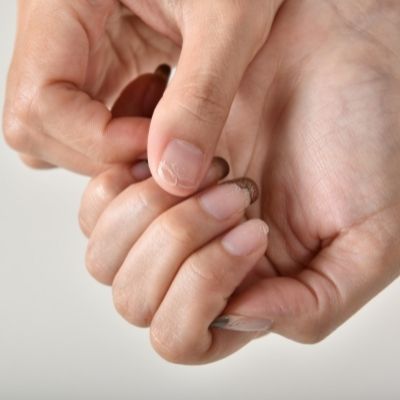Medical Dermatology
From rashes to melanoma, True Dermatology is equipped to handle all your dermatologic needs.



Trusted By 1000s
True Dermatology strives to offer comprehensive dermatologic care with expertise and compassion to ensure that you receive the best possible evaluation and treatment of your skin condition. The specialty of general dermatology includes the medical diagnosis and treatment of diseases and conditions affecting the skin, hair and nails. We are currently accepting new and return patients (self-referred) or patients referred by other physicians. We are experts in performing skin screenings and close evaluation of all types of skin lesions and moles. Additionally, we can diagnose and manage rashes, hair loss, and nail problems.
A few of the skin conditions we see and treat in medical dermatology include:
- Acne
- Hair Loss
- Autoimmune diseases
- Eczema
- Melanoma and other skin cancers
- Nail diseases
- Psoriasis
- Rosacea
- Transplant Dermatology
- Warts
- Cysts
Frequently Asked Questions
Why treat acne?
Myths about acne are as common as the skin problem. One common myth is that you have to let acne run its course.
Dermatologists know that letting acne runs its course is not always the best advice.
Here’s why:
- Without treatment, dark spots and permanent scars can appear on the skin as acne clears.
- Treating acne often boosts a person’s self-esteem.
- Many effective treatments are available.
How do dermatologists treat moles?
Most moles do not require treatment. A dermatologist will remove a mole that:
- Bothers a patient (rubs against clothing, etc.).
- Could be atypical or cancerous.
A dermatologist can remove a mole during an office visit. A few moles will require a second visit. Whether it’s during 1 or 2 visits, a dermatologist can safely and easily remove a mole. A dermatologist will use 1 of these procedures:
- Shave Biopsy: The dermatologist uses a surgical blade to remove the mole.
- Surgical excision: The dermatologist cuts out the entire mole and stitches the skin closed. If the dermatologist suspects that the mole contains cancer, the dermatologist will send the mole to a lab. It will be examined under a microscope. This is called a biopsy.
Never try to shave off a mole at home.
Here’s why you should never try to shave off a mole at home:
- If the mole contains skin cancer, some of the cancer cells can stay in the skin — and even spread.
- You can disfigure your skin, causing a scar or other permanent reminder.
- You can cause an infection.
Outcome
After a mole is removed, the skin will heal. If the mole grows back, immediately make another appointment to see your dermatologist. This is a sign of melanoma, a type of skin cancer.
What is psoriasis?
Psoriasis (sore-EYE-ah-sis) is a chronic (long-lasting) disease. It develops when a person’s immune system sends faulty signals that tell skin cells to grow too quickly. New skin cells form in days rather than weeks.
The body does not shed these excess skin cells. The skin cells pile up on the surface of the skin, causing patches of psoriasis to appear.
Psoriasis may look contagious, but it’s not.
You cannot get psoriasis from touching someone who has it. To get psoriasis, a person must inherit the genes that cause it.
Types of psoriasis
If you have psoriasis, you will have one or more of these types:
- Plaque (also called psoriasis vulgaris).
- Guttate.
- Inverse (also called flexural psoriasis or intertriginous psoriasis).
- Pustular.
- Erythrodermic (also called exfoliative psoriasis).
How do dermatologists treat warts?
Warts often go away without treatment. This is especially true when children get warts. In adults, warts may not disappear as easily or as quickly as they do in children. Although most warts are harmless, dermatologists do treat them.
You should see a dermatologist if you cannot get rid of warts, warts hurt, or you have many warts. Dermatologists have many treatments for warts. The treatment used depends on the patient’s age and health as well as the type of wart.

Prevention
Would you leave the sunscreen home on sunny or cloudy days?
Neither. Sun damage to the skin is caused by ultraviolet radiation from the sun. It penetrates through clouds, haze, and even tinted windows! It is present in the summer and winter.
Therefore, it is important that you and your kids practice sun-protective measures routinely. Although we are experts in skin cancer, the most important defense against sun damage is PREVENTION.
Here are some helpful tips to reduce sun damage:
- Avoid outdoors during 10 a.m and 4 p.m
- Stay in the shade
- Wear clothing that covers arms, legs, and head
- Broad Spectrum Sun Screen
- Avoid indoor tanning
For a skin check, please call to schedule an appointment today at 205-624-2100. We are conveniently located to serve Alabaster, Pelham, Helena, Calera, Jemison, Chelsea, Prattville, Vestavia, Hoover and the surrounding Birmingham areas




